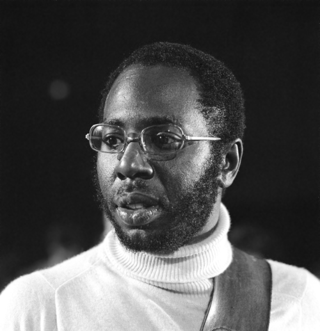
Curtis Lee Mayfield was an American singer-songwriter, guitarist, and record producer, and one of the most influential musicians behind soul and politically conscious African-American music. Dubbed the "Gentle Genius", he first achieved success and recognition with the Rock and Roll Hall of Fame-inducted group the Impressions during the civil rights movement of the late 1950s and the 1960s, and later worked as a solo artist.

Jerry Butler Jr. is an American soul singer-songwriter, producer, musician, and retired politician. He was the original lead singer of the R&B vocal group the Impressions, inducted into the Rock and Roll Hall of Fame in 1991. After leaving the group in 1960, Butler achieved over 55 Billboard Pop and R&B Chart hits as a solo artist including "He Will Break Your Heart", "Let It Be Me" and "Only the Strong Survive". He was inducted into the National Rhythm & Blues Hall of Fame in 2015.

Bad Luck Streak in Dancing School is the fourth studio album by American singer-songwriter Warren Zevon. The album was released on February 15, 1980, by Elektra Records. Three singles were released from the album, one of which charted: "A Certain Girl" reached No. 57 on the Billboard Hot 100 and was Zevon's second and final hit on that chart.
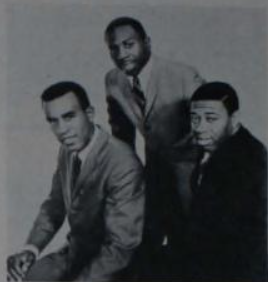
The Impressions were an American music group originally formed in 1958. Their repertoire includes gospel, R&B, doo-wop, and soul.

"Love Don't Live Here Anymore" is a song written by Miles Gregory and originally recorded by Rose Royce. It was produced by former Motown songwriter and producer Norman Whitfield for Whitfield Records. Lead vocals were sung by Gwen Dickey and the song was released as the second single from their third studio album Strikes Again. The song was developed as a result of producer Whitfield's interest to work with Paul Buckmaster, the British arranger and composer. Together they asked songwriter Miles Gregory to write a song for them. Gregory's undergoing medical care for his deteriorating physical health became the inspiration behind the song. "Love Don't Live Here Anymore" incorporated the use of the Pollard Syndrum TwinDrum, and was one of the first songs to effectively use the sound reverbs of the instrument. The song was mainly recorded at music contractor Gene Bianco's house, where Dickey was present during the recording.
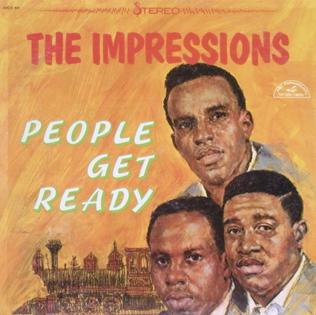
"People Get Ready" is a 1965 single by The Impressions, and the title track from the People Get Ready album. The single is the group's best-known hit, reaching number-three on the Billboard R&B chart and number 14 on the Billboard Hot 100. The gospel-influenced track was a Curtis Mayfield composition that displayed the growing sense of social and political awareness in his writing.

Philip Upchurch is an American jazz and blues guitarist and bassist.
Lakeside is an American funk band, best known for their 1980 number one R&B hit "Fantastic Voyage".

Almighty Fire is the twenty-fourth studio album by American singer Aretha Franklin, released on April 13, 1978, by Atlantic Records. By the time of the album's release, Franklin was going through a commercial slump, due in part to the widespread popularity of disco.

Conversation Peace is the 22nd album released by American musician Stevie Wonder, on the Motown label in 1995. The album was Wonder's first full-length non-soundtrack studio album since 1987's Characters. This album yielded the hits "For Your Love" and the reggae-flavored "Tomorrow Robins Will Sing". This album also saw Wonder reuniting with Robert Margouleff, who assisted during Wonder's "classic period" from 1972 to 1974.

Where There's Smoke... is a 1979 album by Smokey Robinson, released on Motown Records' Tamla label. It contains his Billboard Top ten pop hit single "Cruisin'".

A Piece of the Action is a soundtrack album by American rhythm and blues and gospel singer Mavis Staples, from the 1977 film of the same name. It was released on October 10, 1977, by Curtom Records.
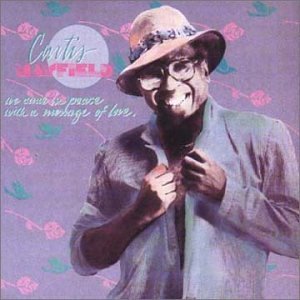
We Come in Peace with a Message of Love is an album by the American musician Curtis Mayfield, released 1985. The first single was "Baby It's You". Mayfield recorded a new version of "We Got to Have Peace".

The Young Mods' Forgotten Story is an album by the American soul music group the Impressions. It was released in 1969 via Curtom Records.

Keep On Pushing is a studio album by the Impressions, released on ABC-Paramount in 1964. This was the group's biggest hit album ever, reaching number 8 on the Billboard 200 chart, the band's highest position on the chart, and number 4 on the Top R&B/Hip-Hop Albums chart. The title track, "Keep On Pushing," reached number 10 on the Billboard Hot 100 chart and number 1 on the Hot R&B/Hip-Hop Songs chart.
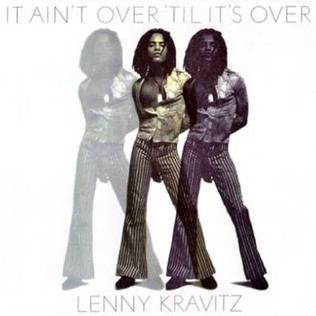
"It Ain't Over 'til It's Over" is a song written, produced, and performed by American musician Lenny Kravitz for his second studio album, Mama Said (1991). Released as the album's second single in June 1991, the song is a mid-tempo ballad musically inspired by Motown, Philly soul, and Earth, Wind & Fire. The horn line at the end is performed by the Phenix Horns from Earth, Wind & Fire. "That song just came out one day, and I knew it had a classic vibe. And I still love that song very much today," Kravitz said in an interview for VivaMusic.com in 2000. The line is based on a Yogiism, or quotation from Yogi Berra: "It ain't over 'til it's over."

Everything Is Everything is the debut studio album by American soul artist Donny Hathaway, which was released on July 1, 1970 on the Atlantic Records' subsidiary, Atco.
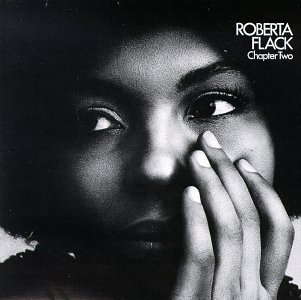
Chapter Two is the second album by the American soul singer Roberta Flack. It was released in 1970 by Atlantic Records.

If My Friends Could See Me Now is the second studio album recorded by American singer Linda Clifford, released in 1978 on the Curtom label.

Night Lights Harmony is a 1975 studio album by American soul music vocal group Four Tops, released by ABC Records.



















